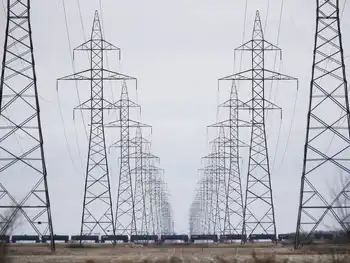Electricity up more in deregulated areas
AUSTIN, TEXAS - Texans living in areas with electric deregulation have faced steeper increases in their utility bills than those in areas without deregulation, according to an analysis by a consumer advocate.
An analysis by Public Citizen Texas showed that electricity costs have gone up 43 percent between 2002 and 2004 for customers living in areas with electric deregulation, Public Citizen Texas Director Tom "Smitty" Smith testified recently before a key Senate committee.
By contrast, customers served by investor-owned utilities in areas that continue under state regulation saw bills increase by less than half that amount, about 17 percent, the Public Citizen analysis shows.
Customers of rural electric cooperatives in regulated areas saw even smaller increases of about 9 percent, according to the analysis.
Smith said Texans have been misled by the promise of electric competition, which began Jan. 1, 2002, and he urged lawmakers to make adjustments.
"People are paying far too much for electricity since deregulation," Smith said.
But TXU spokeswoman Kim Morgan said now is not the time to change the law.
"You have to let the market work itself out," Morgan said.
In making its analysis, Public Citizen used the "price-to-beat" frozen rates paid by residential customers in areas of Texas with deregulation. Against that, the analysis compared residential rates in areas that continue under regulation.
The price-to-beat rate is charged by electric utilities to their hometown customers in parts of the state with deregulation. According to information from the Texas Public Utility Commission, about 60 percent of Texans pay that price-to-beat rate.
But deregulation doesn't have to result in excessively high rates if residential customers would switch off the price-to-beat rate, said state Rep. Phil King, chairman of the House Regulated Industries committee. He said that under deregulation, customers can switch from their hometown utility to one of its lower-priced competitors.
But so far, only 20 percent of customers with the ability to switch to a lower-priced competitor have done so, King said.
"For the life of me, I don't know why they haven't switched," said King, R-Weatherford.
Morgan, of TXU, said the price-to-beat rate was meant to be high enough so that competitors could sweep in with offers of cheaper electricity. She said residential customers in TXU's service territory can save 15 percent by going with a competitor.
"It's meant to encourage new competitors," Morgan said.
Speaking before the Senate Committee on Government Organization on Monday, Smith said the Public Utility Commission should change the way it sets the price-to-beat rate.
The PUC bases price-to-beat rate increases on the volatile natural gas market; instead, it should consider changes in all fuel costs, Smith said.
Smith also said lawmakers should adopt various changes to Senate Bill 408, which authorizes the continued operation of the Texas Public Utility Commission, and he called for the adoption of Senate Bill 759, which would make it easier for cities to aggregate their customers and negotiate with utilities for cheaper electricity.
Another suggestion has been the adoption of Senate Bill 764, which would limit how much generation of electricity the state's big utilities can control. Supporters have said SB 764 would discourage utilities from driving up prices by exercising monopolylike control.
King said there are good policy reasons to adopt each of those measures, but warned that they also may upset the state's electricity market. He has called for his committee to hear testimony on the cost increases under electric deregulation.
Related News

Hydro One: No cut in peak hydro rates yet for self-isolating customers
TORONTO - Hydro One says it is listening to requests by self-isolating residents for reduced kilowatt hour peak rates during the day when most people are home riding out the COVID-19 pandemic.
Peak rates of 20.8 cents per kw/h are twice as high from 7 a.m. to 7 p.m. – except weekends – than off-peak rates of 10.1 cents per kw/h and set by the Ontario Energy Board, not electricity providers such as Hydro One and Elexicon (formerly Veridian).
Frustrated electrical customers have signed their John Henry’s more than 50,000 times to a change.org petition demanding Hydro One temporarily slash rates for…




